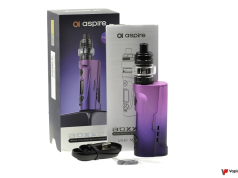Big news for Vuse.
WASHINGTON — The US Food and Drug Administration (FDA) has issued an approval for RJ Reynolds-owned vaping brand Vuse. This approval serves as the first high profile approval of a premarket tobacco product application Amid thousands of denials.
“Today’s authorizations are an important step toward ensuring all new tobacco products undergo the FDA’s robust, scientific premarket evaluation,” said Mitch Zeller, the director of the FDA Center for Tobacco Products, in an Oct. 12 press statement. “The manufacturer’s data demonstrates its tobacco-flavored products could benefit addicted adult smokers who switch to these products – either completely or with a significant reduction in cigarette consumption – by reducing their exposure to harmful chemicals.”
The authorization covers electronic nicotine delivery system products manufactured by the RJ Reynolds Vapor Company. These products include its Vuse Silo closed system device, including the nicotine-containing e-liquid pods, the battery and power unit, and other components. RJ Reynolds, according to the FDA, was able to demonstrate that the marketing of Vuse vape products is appropriate for the protection of public health and, thus, is permitted to be sold.
“We must remain vigilant with this authorization and we will monitor the marketing of the products, including whether the company fails to comply with any regulatory requirements or if credible evidence emerges of significant use by individuals who did not previously use a tobacco product, including youth,” said Zeller in the statement. “We will take action as appropriate, including withdrawing the authorization.”
The PMTA process is mandated by the 2009 Tobacco Control Act. This law has eliminated the vaping industry segment that isn’t affiliated with tobacco companies like RJ Reynolds, Altria, and Philip Morris International. Reported by the Associated Press, a growing number of tobacco control experts and public health advocates have adopted positions that support tobacco harm reduction and risk-reduced nicotine products. Kenneth Warner, a tobacco control expert at the University of Michigan, told the Associated Press (AP) that the news is promising.
“The demands the FDA places on companies filing these applications are so extraordinary difficult to meet that only those with huge resources and personnel — in terms of scientists, lawyers, researchers — are able to file successfully,” said Warner in an interview.
This is a developing story.












